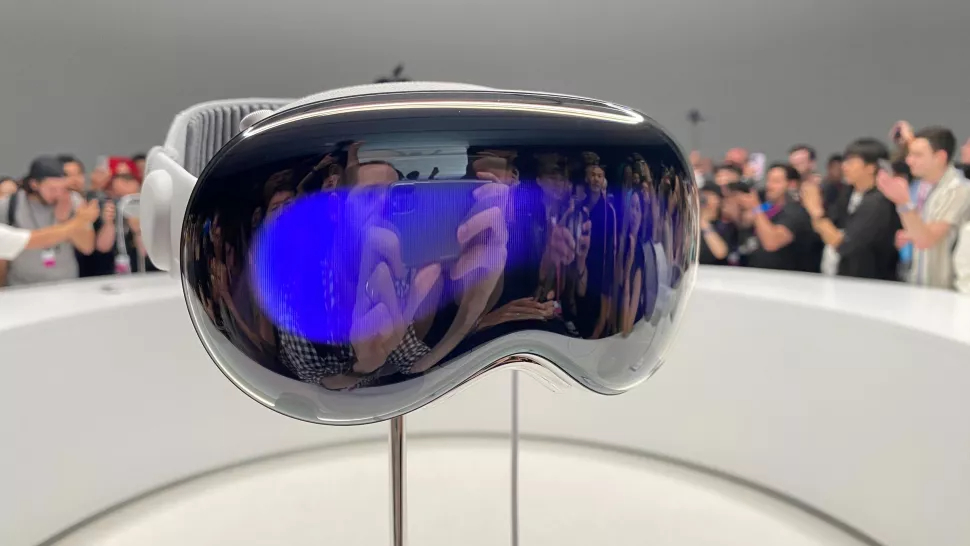
Earlier this week at WWDC, Apple made several hardware announcements related to its Mac platform. The company launched the all-new 15-inch MacBook Air along with a Mac Studio and Mac Pro powered by M2 Ultra processors. However, the product that overshadowed the entire keynote was undoubtedly the Vision Pro extended reality headset.
We learned a lot about the headset, including its impressive dual Micro-OLED displays featuring a collective 23 million pixels. Each eye has access to over 4K resolution, resulting in a crystal-clear picture with no hint of pixels in view, according to people that had hands-on time with the headset. Now, a developer session from Apple's developer conference reveals that the Vision Pro's displays have a refresh rate of "usually 90 frames per second."
For reference, non-pro MacBooks, iPhones and iPads have a refresh rate of 60 Hz, while the Pro variants of each feature a 120 Hz refresh rate. The 90 Hz refresh rate of the Vision Pro puts it right in the middle. The Vision Pro doesn't meet the 120 Hz threshold, so it doesn't carry the ProMotion label attached to devices such as the iPhone 14 Pro, iPad Pro, and 16-inch MacBook Pro.
In the developer session entitled "Deliver video content for spatial experiences," the presenter also revealed that the 90 Hz refresh rate is not static. Apple says a maximum refresh rate of 96 Hz "may be used automatically" while playing 24 fps video content.
In addition to the high-tech displays, the Vision Pro is powered by a 5nm M2 processor in conjunction with an R1 co-processor tasked with wrangling the data from a dozen cameras, six microphones and five sensors.
Apple's Vision Pro is expected to launch in 2024 with a price tag of $3,499. That price puts it out of reach for most consumers, but many are hopeful that subsequent generations can hit more palatable price points, allowing for broader adoption. As my colleague Andrew E. Freedman wrote, "I firmly see this announcement as a first step in building the future, with Apple's dedicated third-party developers making experiences that will germinate here, but become invaluable down the line."







